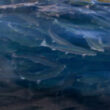Lucas Zena
PhD
Scientist
I have a broad interest in comparative physiology, with a particular focus on the cardiorespiratory physiology of vertebrates. My current research primarily explores fish cardiovascular physiology, especially how coronary oxygen supply influences overall cardiorespiratory performance in salmonid fish. This work has direct implications for understanding the health and welfare of farmed fish in aquaculture. Using experimental models of cardiac pathology, in vivo electrocardiography (ECG) recordings, and histological and immunohistochemical analyses of heart tissues, I aim to uncover the fish heart’s capacity for repair following cardiac injury.
Cardiovascular diseases are a leading cause of morbidity and mortality in humans worldwide, contributing to conditions such as sudden cardiac death, myocardial infarction, heart failure, and ischemia in major organs and limbs. Similarly, cardiovascular disease poses a significant threat to farmed animals. When coronary blood flow is reduced, myocardial infarction (MI) can occur, leading to the loss and damage of myocardial cells. In species with limited regenerative capacity, this results in scar formation, which can impair heart contractility and disrupt its electrophysiological properties. Severe complications, including cardiac wall rupture, arrhythmias, and heart failure, can be fatal.
Interestingly, arteriosclerosis has been documented in several salmonid species, affecting both wild and farmed populations. This condition is suspected to contribute to ischemic heart disease, which may be a major cause of mortality in farmed salmonids.
In my recent projects, I used electrocardiography (ECG) to assess the electrical activity of the trout heart, focusing on detecting signs of ischemic heart disease. By experimentally inducing ischemia in rainbow trout through coronary artery occlusion, I aimed to identify markers of abnormal electrical activity. This approach mirrors diagnostic techniques used in human cardiology and could serve as a screening tool for heart disease in farmed salmonids. Given its non-invasive nature, ECG holds great potential for monitoring cardiovascular health in aquaculture settings. The insights from my research could help refine predictive models assessing the impact of common aquaculture stressors—such as grading, transportation, and disease treatments—on mortality risk in farmed salmonids.



